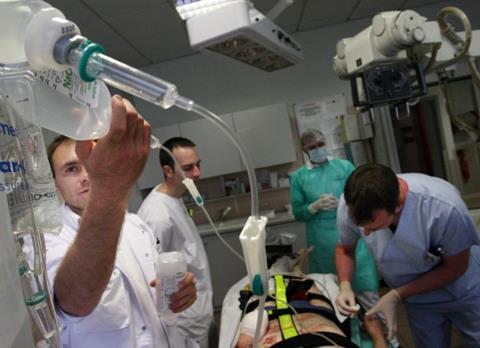With outpatient activity often ignored in policy creation, Nigel Edwards delineates the learnings from an event held to hear from people who have fundamentally changed outpatient services

Outpatient activity has grown faster than all other hospital activity over the last 10 years, but in policy terms it receives comparatively little attention, even if it has been more in the news recently.
Attempts to reduce the pressure on outpatient services have only had limited success. First, referral management initiatives – which involve the administrative or clinical review of GP referrals to outpatient care – have grown rapidly.
But there is very little evidence they either effectively reduce unnecessary referrals or save money, and they can create delays for patients.
Most outpatient costs are fixed – costs that vary with activity are relatively small. The result is that administrative approaches to referral management have the potential to increase total costs by adding new functions but not allowing providers to reduce their costs.
Second, a series of policy initiatives have focused on relocating outpatient services to cheaper facilities. This focus on location and playing off differences in price is futile – overheads will simply be reallocated to other services – and misses the point that more fundamental redesign might obviate the need to have the service in its current form at all.
Outpatients is not one service, and realising this is fundamental to making effective policy
Third, outpatient policy is often based on blanket assumptions, such as the usefulness of follow-ups, the replacement of face to face with video conference, or the significance of moving services “into the community”.
But outpatients is not one service, and realising this is fundamental to making effective policy.
There is undoubtedly scope for major change in outpatients, which will make the experience better for patients and staff and will greatly improve the efficiency of how they operate.
It is much more doubtful that this will produce major cash savings, but for many systems improving the productivity of scarce experts without simply making them work harder is the key challenge.
We held an event with NHS Improvement to hear from people who have fundamentally changed outpatient services, and a number of lessons emerged.
Strengthen relationships and knowledge exchange to improve the referral process
Rather than using administrative systems to shape referral models, having access to advice and a conversation with a consultant is a better way forward.
Paediatricians in two London teaching centres, for example, have been working closely with GPs to run case based teaching and discussion sessions. As well as improving GP knowledge and giving consultants greater insight into the wider population health issues in their community, it also changes the dynamic of the GP consultant relationship and allows much better communication.
Rather than using administrative systems to shape referral models, having access to advice and a conversation with a consultant is a better way forward
The result has been significant reductions in outpatient referrals – by 39 per cent in one GP hub, with other reductions in subspecialty referrals, accident and emergency attendance and emergency admission. Education and advice models can be at least as effective in other specialties.
Such approaches raise interesting questions about the future role of hospital staff who specialise in long term conditions. Moving to a more proactive and population health focused approach has had a significant impact in diabetes, and there may be scope for this rethinking across a wide range of other hospital activity.
Redesign services to make best use of consultant time
The development of virtual clinics in conditions where data can be collected in advance, or directly entered by the patient, does not just allow for a reduction in patient travel. It can also allow redesign of skill mix and task allocation to make better use of scarce consultant time.
These models also offer a more intelligent approach to reducing follow-up appointments than the blanket approaches sometimes adopted by commissioners or in the design of payment systems.
The unit for redesign is not the outpatient service – in many cases it is not even the specialty
Examples include using tools such as the Patient Reported Outcome Measures questionnaires to help establish (along with patient opinion) the need for follow-up in Central Manchester’s orthopaedic service. Virtual fracture clinics are also already widespread.
Interventions should be clinician led, with team support
The unit for redesign is not the outpatient service – in many cases it is not even the specialty. The specific needs of groups of patients require different designs, skill mix, technology and modalities for using the service.
When this is clinically led, rather than dictated by commissioners or national policy, some interesting results start to emerge.
More intelligent approach needed
The lesson from our work is that a more intelligent and focused approach to redesign is required. Organisations need to sort out the IT, payment models and skill mix to make this happen, rather than use them as an excuse not to change.
Commissioners need to take a similarly innovative approach. They need to avoid the old games of moving cost and activity around, or rationing access to specialists in ways that fail to really change what is spent or the patient’s experience, and which can make things worse rather than better.































2 Readers' comments